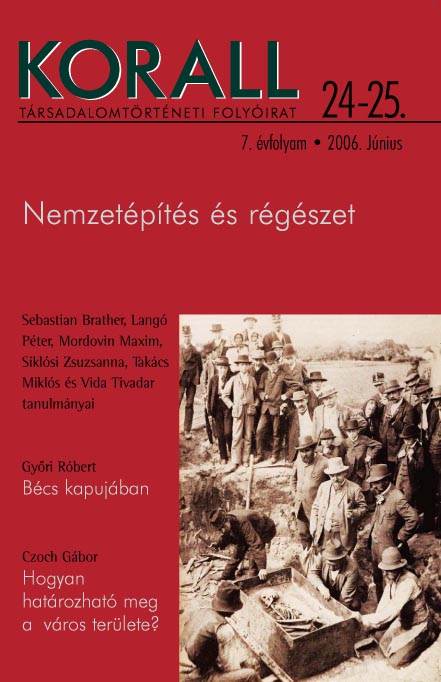A normann-elmélet Oroszországban a kezdetektől napjainkig
The norman-theory in Russia fromthe beginning until the recent events
Author(s): Maxim MordovinSubject(s): History
Published by: KORALL Társadalomtörténeti Egyesület
Summary/Abstract: The question concerning the origins of the stately structure of the eastern Slavshas remained intriguing since the very beginning of its scholarly investigations.These were founded by the fi rst members of the Russian Academy of Science in the fi rst half of the eighteenth century. The earliest scientifi c views, partly basedon the previous traditions were formulated by two prominent historians of Germanorigin: Gottlieb Siegfried Bayer and Gerhardt Friedrich Müller. They can beregarded as the fathers of the so called norman-theory. Their opinion concerningthe important (if not determining) role of the northern, namely Scandinavian,tribes in the formation of the early Russian state was almost immediately critisisedby Mikhail Lomonosov, the well known Russian scientist. The discussionstarted just before the rise of the local nationalisms has been continuing until thepresent days having a strong infl uence fi rst on the historical and later also on thearchaeological studies. The objective research of the Varangian’s real role in theearly Russian history was very often obstructed by the current political circumstances,e.g. Napoleonic wars, rising Russian nationalism, the 1917-revolution,the marrism, the Soviet-Russian chauvinism etc. The main purpose of this articleis to give a brief outline of the development of the normannism-antinormannism,and to show its connection with the contemporary political situation from thevery beginning until the recent events.
Journal: Korall - Társadalomtörténeti folyóirat
- Issue Year: 2006
- Issue No: 24-25
- Page Range: 118-162
- Page Count: 45
- Language: Hungarian

